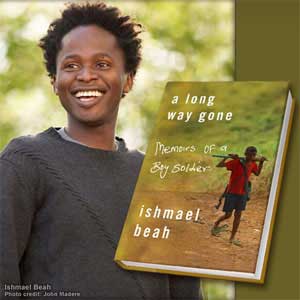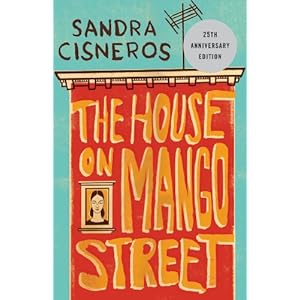
I had the good fortune, several years ago, to go to a small seminar that happened to have Ishmael Beah as the keynote speaker. I remember thinking to myself, "How can anyone who has been through such horrific things be so happy?" Since that day, Ishmael has always been one of the people I try to model myself after. If he can wake up and live life with a smile on his face, so can I.
Even though this was my second time reading A Long Way Gone, I was still as shocked and saddened by the contents of the novel as I was the first time I read it. From scenes with babies that have been shot to death, dismembered community members and imams that have been burnt to death, their remains eaten by animals, A Long Way Gone is certainly a blunt-forced reminder of the terrible cruelty that humans can inflict on one another. Yet, amongst all the horror, Ishmael finds a way to provide bittersweet glimpses of human warmth and kindness. Despite it's grim nature, A Long Way Gone still leaves you feeling hopeful.
A Long Way Gone is certainly its own type of coming-of-age story, and one that I think everybody should read. I don't want to presume what an individual reader can get out of A Long Way Gone, because I think the message gleaned from this memoir is probably different and deeply personal for each reader.
However, I can say that I deeply admire Ishmael's bravery and openness in discussing the horrifying nature of civil war and becoming a boy-soldier. I feel like his memoir provides its readers with a better understanding into this often forgotten world, while also calling into focus the blurry line between right and wrong.





